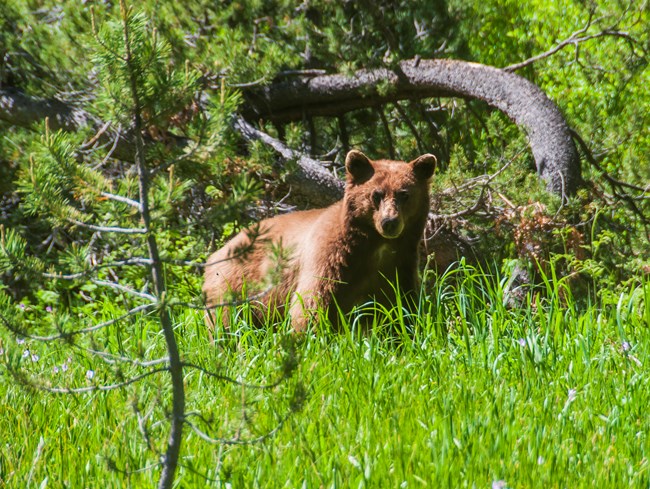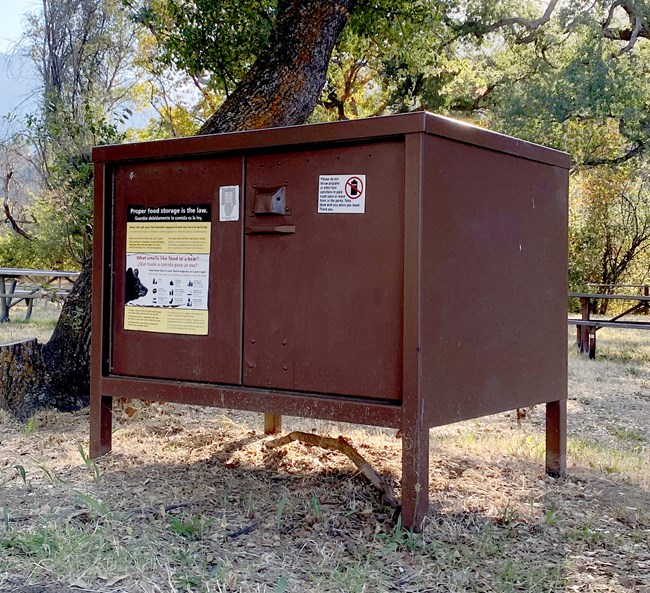
NPS Photo - Isaac Chellman Bear habitat means food storage is requiredBears can grab unattended food or easily break into cars that have food in them. They become bold and sometimes aggressive in attempts to get more. Too often these bears must be killed. What items must be stored?All food and anything with a scent (even if you don't consider it food) must be stored. This includes but is not limited to the following:
Bears are able to recognize items like coolers, camp stoves, and grocery bags, so be sure to store them too. They are likely to have residual food odors, but bears that have recieved previous food rewards from these items may target them even if they are clean and don't contain food. 
NPS Photo - Erika Williams How to Store Food and Scented Items Properly
In Picnic AreasStore all food and related supplies properly, including ice chests. Never leave food unattended. Dispose of all garbage properly. In CampgroundsStore ALL food, coolers, related items, and anything with an odor (even non-food) 24 hours a day, when not in use. This includes unopened cans and bottles. Food and related supplies should be placed in the metal storage boxes that are provided at each campsite. Only when camping where there are no metal boxes, store food and related supplies out of sight inside a vehicle trunk. Never leave camp unattended if food is not stored. Take infant car seats out of vehicles when parked overnight. Bears may enter campsites during the day, even if people are there. Put trash in bear-resistant cans and dumpsters regularly. While Day-HikingProperly store all food, scented items, and food-related supplies left at the trailhead inside a provided food storage box. This includes coolers. If no food storage box is available, store food in your car trunk. For vehicles with no trunk, place food items low and out of sight and keep windows closed. When hiking, don't leave your backpack and walk off to take a photograph—always stay within arm's length of your food. Bears know backpacks are a source of food. When BackpackingLearn about wilderness food storage as you plan your backpacking trip. LodgingStore all food and related supplies indoors. Put all garbage in bear-resistant cans and dumpsters. Take infant car seats out of vehicles when parked overnight. When You See a BearNever approach any bear, regardless of its size. Before you visit, learn more about bear encounters. Report incidents and sightings to a ranger. These regulations and precautions help decrease the chance of personal injury or property damage. However, bear damage and confrontations are still possible, even when all guidelines are followed. Learn MoreRead about bear management in these parks and explore photos, videos, and links to other parks with bears. |
Last updated: July 7, 2025
